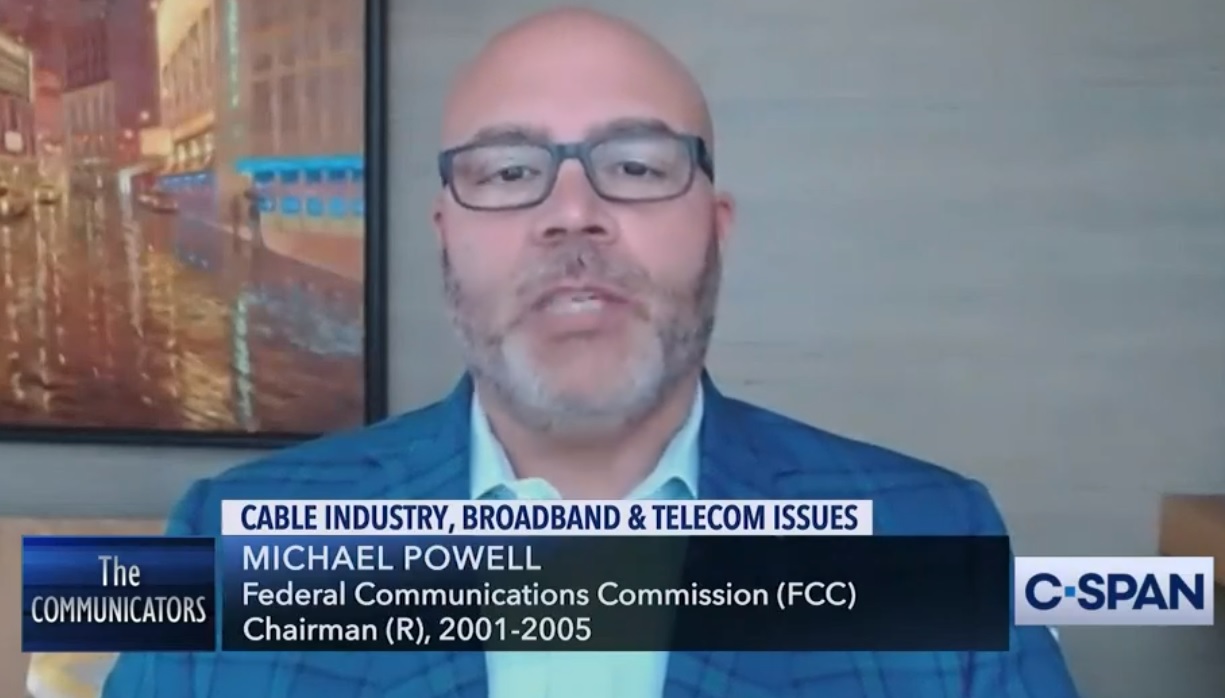NCTA's Powell: Cable Scores with OTT as Well as Traditional Video
Says Wall street still bullish on cable business

The smarter way to stay on top of the multichannel video marketplace. Sign up below.
You are now subscribed
Your newsletter sign-up was successful
The story of cable video's demise is overstated, but even given the shift to over-the-top platforms, cable companies equally benefit from that as the country's leading broadband providers.
That was according to a bearded Michael Powell, president of NCTA-The Internet & Television Association, on this week's episode of C-SPAN's Communicators series.
Powell said he had been hearing the cord-cutting narrative for over a decade and cable companies added subs during the pandemic, continue to have sound financial performance, and said that most Wall Street analysts are bullish on the industry's future.
Also Read: NCTA's Powell: Cable Scores with OTT As Well As Traditional Video
On the issue of infrastructure funding, the Biden Administration's planned billions of dollars in broadband buildout subsidies rely heavily on funding municipal broadband, something Powell said may be problematic.
He said it was not accurate to say that broadband operators don't think there are any areas where municipal broadband or local coops aren't part of the solution. But he said the government "would be wise to look carefully at the history of municipal networks and their success rates" given that Powell said the vast majority of those over the last decade have failed. That has been one of the arguments by cable operators for why they backed state legislation limiting muni broadband nets.
He pointed to a Bristol, Virginia, muni fiber network that failed to the tune of $130 million and Provo, Utah, with a failed network that was sold to Google for a dollar but retained $40 million in debt.
The smarter way to stay on top of the multichannel video marketplace. Sign up below.
He said that often the projects are built, but then it is the challenging ongoing operational costs that "often make it a poor choice" for deploying broadband.
He said to prioritize such buildouts--as the Biden infrastructure plan appears to do--"fails to diagnose the problem accurately," he said. He said do muni when it makes sense, but added that the majority of successful buildouts are not government run.
Also Read: NCTA's Powell on Broadband Subsidies: Spend Smart
Powell said the Biden broadband infrastructure plan's goal of future-proofing the networks it is funding is a "respectable instinct." But the key is what that means, suggesting the government's crystal ball may not provide a clear picture.
The Biden proposal suggests that the definition of "unserved" could include price and competition as well as speed. Powell said "unserved" should mean "no broadband" or "very little" broadband or inadequate, rather than spending to upgrade communities that have adequate broadband.
Contributing editor John Eggerton has been an editor and/or writer on media regulation, legislation and policy for over four decades, including covering the FCC, FTC, Congress, the major media trade associations, and the federal courts. In addition to Multichannel News and Broadcasting + Cable, his work has appeared in Radio World, TV Technology, TV Fax, This Week in Consumer Electronics, Variety and the Encyclopedia Britannica.

